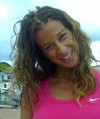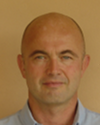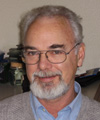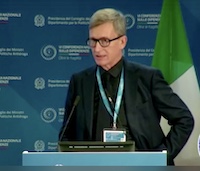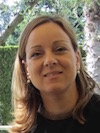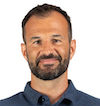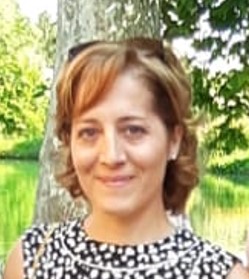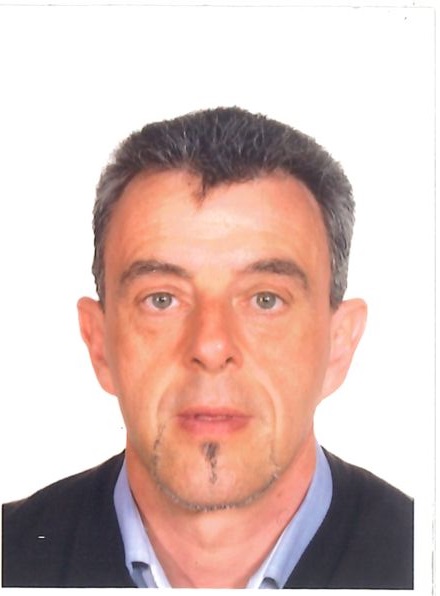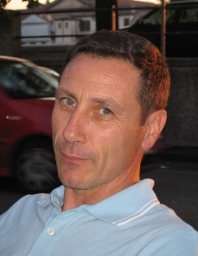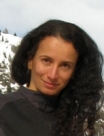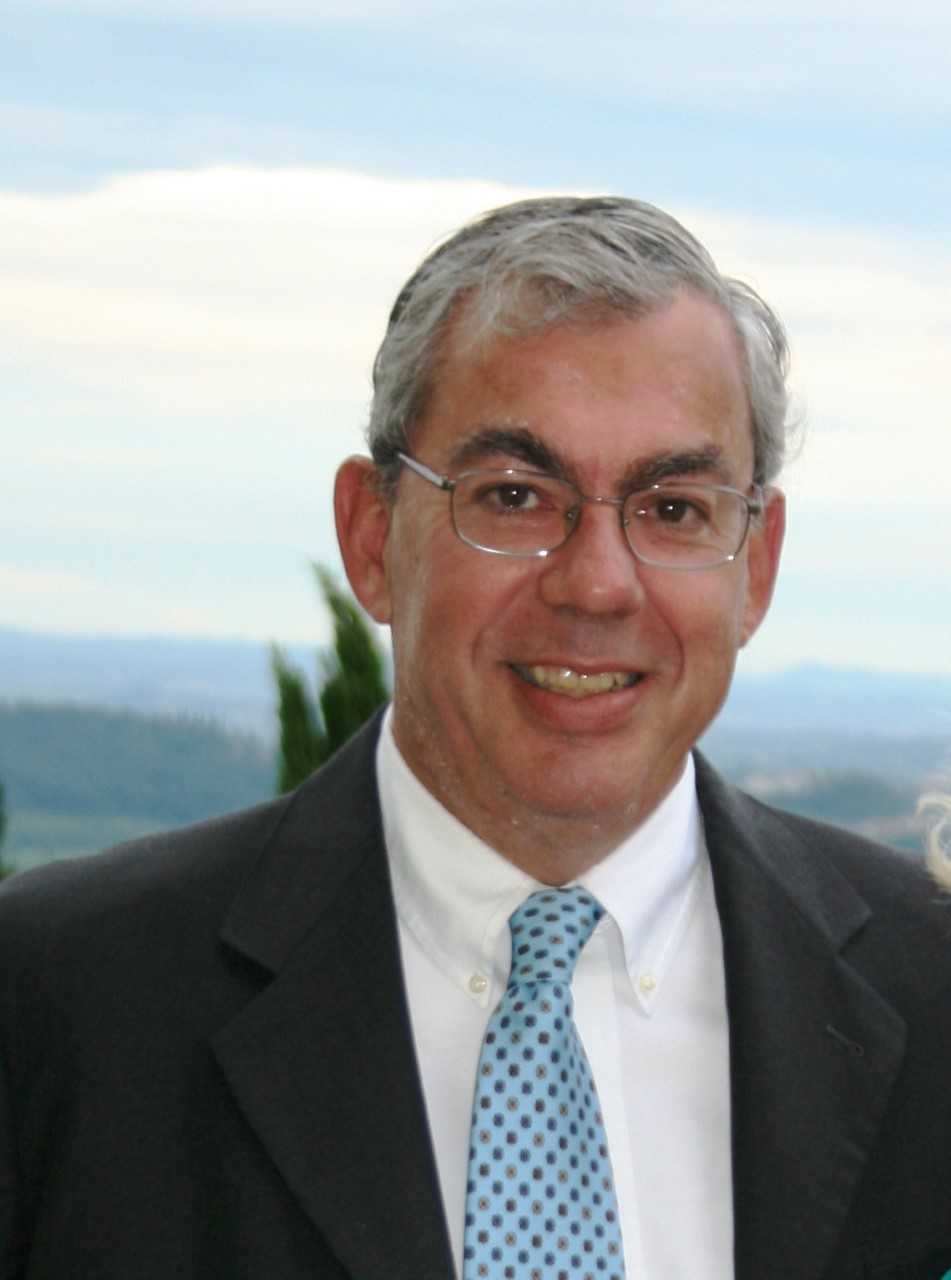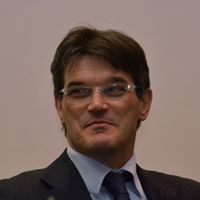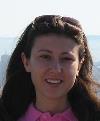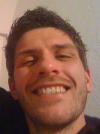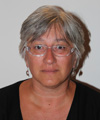Studying at the University of Verona
Here you can find information on the organisational aspects of the Programme, lecture timetables, learning activities and useful contact details for your time at the University, from enrolment to graduation.
Academic calendar
The academic calendar shows the deadlines and scheduled events that are relevant to students, teaching and technical-administrative staff of the University. Public holidays and University closures are also indicated. The academic year normally begins on 1 October each year and ends on 30 September of the following year.
Course calendar
The Academic Calendar sets out the degree programme lecture and exam timetables, as well as the relevant university closure dates..
| Period | From | To |
|---|---|---|
| I Semestre | Oct 1, 2012 | Jan 25, 2013 |
| II Semestre | Mar 4, 2013 | May 31, 2013 |
| Session | From | To |
|---|---|---|
| Saperi Minimi | Oct 1, 2012 | Sep 30, 2013 |
| Sessione Invernale | Jan 28, 2013 | Feb 26, 2013 |
| Sessione Estiva | Jun 3, 2013 | Jul 12, 2013 |
| Sessione Autunnale | Aug 26, 2013 | Sep 27, 2013 |
| Sessione straordinaria 12/13 | Jan 30, 2014 | Feb 28, 2014 |
| Session | From | To |
|---|---|---|
| Sessione Invernale | Mar 18, 2013 | Apr 12, 2013 |
| Sessione Estiva | Jul 15, 2013 | Jul 30, 2013 |
| Sessione Autunnale | Oct 8, 2013 | Oct 25, 2013 |
| Sessione straordinaria 12/13 | Mar 20, 2014 | Apr 11, 2014 |
| Period | From | To |
|---|---|---|
| Ognissanti | Nov 1, 2011 | Nov 1, 2011 |
| Immacolata | Dec 8, 2012 | Dec 8, 2012 |
| Vacanze di Natale | Dec 21, 2012 | Jan 6, 2013 |
| Vacanze di Pasqua | Mar 29, 2013 | Apr 2, 2013 |
| Liberazione | Apr 25, 2013 | Apr 25, 2013 |
| Festa dei Lavoratori | May 1, 2013 | May 1, 2013 |
| Ricorrenza Santo Patrono | May 21, 2013 | May 21, 2013 |
| Festa della Repubblica | Jun 2, 2013 | Jun 2, 2013 |
| Vacanze estive | Aug 9, 2013 | Aug 16, 2013 |
Exam calendar
Exam dates and rounds are managed by the relevant Exercise Science Teaching and Student Services Unit.
To view all the exam sessions available, please use the Exam dashboard on ESSE3.
If you forgot your login details or have problems logging in, please contact the relevant IT HelpDesk, or check the login details recovery web page.
Academic staff
Agosti Alberto
 alberto.agosti@univr.it
alberto.agosti@univr.it
 +39 045802 8774
+39 045802 8774
 valentina.biino@univr.it
valentina.biino@univr.it
 paola.cesari@univr.it
paola.cesari@univr.it
 vdurigon@katamail.com
vdurigon@katamail.com
 lonardifabiola@gmail.com
lonardifabiola@gmail.com
 dino.mascalzoni@univr.it
dino.mascalzoni@univr.it
 alberto.nuvolari@gmail.com
alberto.nuvolari@gmail.com
 laura.selmo@univr.it
laura.selmo@univr.it
 francescouguagliati@alice.it
francescouguagliati@alice.it
 francesca.vitali@univr.it
francesca.vitali@univr.it
Study Plan
The Study Plan includes all modules, teaching and learning activities that each student will need to undertake during their time at the University.
Please select your Study Plan based on your enrollment year.
1° Year
| Modules | Credits | TAF | SSD |
|---|
2° Year activated in the A.Y. 2013/2014
| Modules | Credits | TAF | SSD |
|---|
3° Year activated in the A.Y. 2014/2015
| Modules | Credits | TAF | SSD |
|---|
| Modules | Credits | TAF | SSD |
|---|
| Modules | Credits | TAF | SSD |
|---|
| Modules | Credits | TAF | SSD |
|---|
Legend | Type of training activity (TTA)
TAF (Type of Educational Activity) All courses and activities are classified into different types of educational activities, indicated by a letter.
Coaching team sports - TECNICHE E DIDATTICA DEGLI SPORT DI SQUADRA (LEZIONI) (2014/2015)
Teaching code
4S01994
Teacher
Credits
6
Language
Italian
Scientific Disciplinary Sector (SSD)
M-EDF/02 - SPORT SCIENCES AND METHODOLOGY
Period
II semestre dal Mar 2, 2015 al Jun 5, 2015.
Learning outcomes
GENERAL COURSE OBJECTIVES OF THE COURSE
The course will allow the student to understand and make his own the tools necessary to conduct and analyze team sports taking as a model different disciplines.
The program focuses attention on the knowledge of the types of programming and on the analysis of the strategies, methods and tools necessary for the organization and management of a work plan for group sports activities. Students will be provided with the tools necessary to operate within the development systems of:
• conditional abilities;
• specific skills of the different sports disciplines;
• tactical skills.
SPECIFIC LEARNING OBJECTIVES
At the end of the course the student will be able to:
• Implement a short, medium and long term planning
• Competently use the tools for assessing motor skills and abilities
• Choose and formulate the appropriate objectives
• Apply appropriate strategies (means and methods)
• Organize the operating environment (time, space, equipment and tools)
Program
TEACHING PROGRAM
Structure of programming in the short, medium and long term
Tools for initial, intermediate and final assessment of motor skills and abilities
Choice and formulation of objectives
Strategies (means and methods)
Organization of the operating environment (time, space, equipment and tools)
Functional evaluation and specific tests
Fundamental phases of sports training
Setting of physical programming in the youth sector
Aerobic power and aerobic metabolism training
Flexibility
Postural deficits
Prevention work planning
Muscles of the deep layer
Proprioceptive and stabilization exercises
Regeneration
Enjoy yourself
The 11 (Prevention program)
Screening
overtraining
Riatletizzazione
Nutritional principles for the athlete
ARGUMENTS OF THE LESSONS (CLASSROOM)
1. Functional evaluation and specific tests.
2. Postural deficits.
3. Muscles of the deep layer.
4. Proprioceptive and stabilization exercises.
5. Flexibility and Stretching.
6. Basic phases of sports training.
7. Setting of physical programming in the youth sector.
8. Prevention work planning.
9. Screening - Regeneration, prevention - Overtraining - Reautletization.
Examination Methods
The exam includes the evaluation of the four didactic tasks foreseen by the course:
internship report
adherence to the activities of the online platform
active participation in teaching exercises
presentation in double format (writing and presentation) of an educational project related to sports activities on technical, physical, psychological and methodological aspects.
evaluation of the aspects related to the methodological, didactic and communicative principles
Teaching materials e documents
-
 sport di squadra1415
(pdf, it, 352 KB, 07/10/19)
sport di squadra1415
(pdf, it, 352 KB, 07/10/19)
Type D and Type F activities
Modules not yet included
Career prospects
Module/Programme news
News for students
There you will find information, resources and services useful during your time at the University (Student’s exam record, your study plan on ESSE3, Distance Learning courses, university email account, office forms, administrative procedures, etc.). You can log into MyUnivr with your GIA login details: only in this way will you be able to receive notification of all the notices from your teachers and your secretariat via email and also via the Univr app.
Graduation
List of thesis proposals
| theses proposals | Research area |
|---|---|
| ANTROPOMETRIA E COMPOSIZIONE CORPOREA NEL CALCIO | Various topics |
| ANTROPOMETRIA TRIDIMENSIONALE - ESEMPI APPLICATIVI | Various topics |
| Controllo posturale e locomozione in età evolutiva | Various topics |
| EFFETTO DELLA VIBRAZIONE CORPOREA TOTALE SU PEDANA | Various topics |
| Feedback Aumentativo e Apprendimento Motorio | Various topics |
| Il ruolo della fatica cognitiva nella prestazione motoria e nella percezione corporea: teorie di riferimento e strumenti di indagine | Various topics |
Gestione carriere
Student mentoring
Orario lezioni
L’orario delle lezioni comprende
Lezioni Frontali in aula
Esercitazioni e laboratori
Questi ultimi sono organizzati per gruppi dai singoli docenti responsabili dei corsi.
L'orario è pubblicato nel portale studenti
Modalità di frequenza
Vige l'obbligo di frequenza al 70% come specificato nel Regolamento di ogni singolo corso di laurea e laurea magistrale:
Ulteriori informazioni:
L'accesso alle pagine Moodle dei singoli insegnamenti è vincolato alla compilazione del piano di studi.
App Univr Lezioni, FAQ e guida all'utilizzo sono disponibili al seguente link: orario-lezioni-e-modalita-di-frequenza
Comunicati: Avvisi per studenti
Internships
Internships are aimed at enabling students to gain direct knowledge of the world of work and to acquire specific professional skills.
Internships are carried out under the responsibility of an individual lecturer, and can be carried out in professional firms, public administration bodies and companies recognised by the University of Verona.
Any CFU credits gained by doing internships will be recognised and recorded by the University in accordance with the relevant University regulations in force (Regolamento d’Ateneo per il riconoscimento dei crediti maturati negli stage universitari).
For further information on internships, please go to: https://www.univr.it/it/i-nostri-servizi/stage-e-tirocini.
Recupero Obblighi Formativi - OFA
I corsi di supporto per il recupero degli Obblighi Formativi aggiuntivi - OFA di Chimica, Fisica, Matematica - sono organizzati annualmente e sono segnalati direttamente nell'orario delle lezioni del 1° anno ► vedi pagina.
Al termine di ciascun corso frequentato gli studenti dovranno sostenere e superare una prova scritta per colmare il debito entro il 15 dicembre dell'anno successivo, per potersi iscrivere al 2° anno.
►Date e orari degli appelli sono indicati nel Calendario Didattico - Calendario Esami.
In caso di mancato superamento degli obblighi formativi entro il 15/12, lo studente resterà iscritto al 1° anno anche per l'anno successivo come ripetente, dovrà sostenere la verifica di recupero in un altro appello e NON non potrà frequentare o sostenere gli esami del 2° anno.
Modalità e sedi di frequenza
La frequenza è obbligatoria.
Maggiori dettagli in merito all'obbligo di frequenza vengono riportati nel Regolamento del corso di studio disponibile alla voce Regolamenti nel menu Il Corso. Anche se il regolamento non prevede un obbligo specifico, verifica le indicazioni previste dal singolo docente per ciascun insegnamento o per eventuali laboratori e/o tirocinio.
È consentita l'iscrizione a tempo parziale. Per saperne di più consulta la pagina Possibilità di iscrizione Part time.
Le sedi di svolgimento delle lezioni e degli esami sono le seguenti:
- 1° anno: Polo Zanotto; Polo Santa Marta; Silos di ponente
- 2° e 3° anno: Palazzo di Scienze Motorie; Palazzetto Gavagnin
Certificazione medica di idoneità
Riferimenti normativi principali: DM 24 aprile 2013 art. 3, GU 169 del 20-07-2013; Decreto del Ministro della Salute dell’8 agosto 2014 e s.m.i.
Per frequentare le attività dei corsi di Laurea e Laurea magistrale di Scienze motorie è obbligatorio presentare la certificazione medica di idoneità fisica per attività sportiva non agonistica. La certificazione è necessaria per accedere alle attività pratiche-esercitative e al tirocinio.
à COME OTTENERE LA CERTIFICAZIONE
La certificazione - riportante l’indicazione che è stato eseguito l’ECG a riposo - può essere rilasciata da:
- centri o servizi di medicina dello sport delle ASL (ora ATS) e delle aziende ospedaliere
- istituti della Federazione Medico Sportiva Italiana
- centri pubblici o privati autorizzati:
- dai medici di medicina generale di libera scelta, relativamente ai propri assistiti;
- dal medico specialista in medicina dello sport.
L’ECG a riposo deve essere ripetuto annualmente.
E’ ammesso anche il certificato medico di idoneità alla pratica sportiva agonistica, per chi ne fosse già in possesso.
à SCADENZA PER LA PRESENTAZIONE
La certificazione medica deve essere prodotta al momento dell'immatricolazione e, comunque, entro l’inizio delle lezioni alla Segreteria Corsi di Studio Scienze motorie. Spetta agli studenti rinnovarla annualmente alla scadenza - per ogni anno di iscrizione in corso o fuori corso. La Segreteria effettuerà periodicamente dei controlli sulla consegna dei certificati.
NOTA: Studenti immatricolati a seguito di SUBENTRO/RIPESCAGGIO/TRASFERIMENTO IN INGRESSO: se non è possibile rispettare la scadenza di presentazione del certificato sopra indicata, avvisare la Segreteria Corsi di Studio Scienze, scrivendo all’indirizzo certmed.scienzemotorie@ateneo.univr.it
à MODALITA’ DI CONSEGNA
La certificazione va inviata alla Segreteria Corsi di Studio Scienze motorie dalla propria e-mail istituzionale nome.cognome@studenti.univr.it all’indirizzo certmed.scienzemotorie@ateneo.univr.it.
Student login and resources
Esami propedeutici
Alcuni insegnamenti del piano didattico sono definiti "propedeutici", perchè permettono di acquisire le conoscenze necessarie per affrontare lo studio di insegnamenti successivi. Di conseguenza, è obbligatorio superare gli esami degli insegnamenti propedeutici prima di sostenere gli esami di un anno seguente. Le propedeuticità presenti sono indicate di seguito nella tabella:
| Anno | Esami propedeutici | Anno | Esami che richiedono il superamento di propedeuticità | |
| 1 | Biologia | prima di | 2 | Fisiologia |
| Anatomia umana | ||||
| 1 | Biologia | prima di | 2 | Biomeccanica |
| Anatomia umana | ||||
| 1 | Biologia | prima di | 2 | Tecniche e metodologie dell'allenamento |
| Anatomia umana | ||||
| Biochimica del movimento | ||||
| 2 | Fisiologia | |||
| 1 | Biologia | prima di | 3 | Tecniche e didattica degli sport individuali e di squadra |
| Anatomia umana | ||||
| Biochimica del movimento | ||||
| 2 | Fisiologia | |||
| Tecniche e metodologie dell’allenamento | ||||
| 1 | Biologia | prima di | 3 | Attività motorie preventive e adattate |
| Anatomia umana | ||||
| Biochimica del movimento | ||||
| 2 | Fisiologia | |||
| Tecniche e metodologie dell’allenamento | ||||
| 1 | Biologia | prima di | 3 | Malattie dell'apparato locomotore |
| Anatomia umana | ||||
| 2 | Fisiologia | |||
| 1 | Biologia | prima di | 3 | Farmacologia e cardiologia applicate all'attività motoria |
| Anatomia umana | ||||
| 2 | Fisiologia | |||

